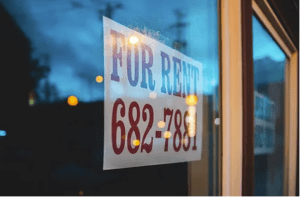
Costa Rica buying a car
Costa Rica Country Guide
Everything you need to know about moving to Costa Rica
How to Purchase a Car in Costa Rica
The used car market in Costa Rica can be tricky to navigate
Many expats that live in Costa Rica choose to purchase a used car. Costa Rica has a robust used car market, however there it’s important to navigate the process wisely, considering factors like vehicle history, pricing, and legal requirements.
Navigate page
Overview of the Car Market in Costa Rica
The used car market in Costa Rica is relatively informal. Expats looking to purchase a new car can explore options from either dealerships or private sellers. In practice, neither is better or worse than the other. Most cars, whether being sold through a dealer or by private seller, can be found on marketplace sites including Encuentra24, CRautos.com,or Facebook Marketplace.
Heavy import duties on automobiles are just one of the reasons that car prices are typically 25-50% higher than what you might expect to pay in the US or Canada. Negotiation is expected during the closing price, however popular brands — like Toyota — that have 4×4 will likely be much more expensive than you might be comfortable paying. Fortunately, this also means that used cars tend to retain their value better than they do in the US and Canada. Brands like Toyota, Honda, and Mistsubishi are generally favored because of their reliability and the availability of parts in the country.
Because the market is informal, it can be hard to get a reliable history of a vehicle in Costa Rica.
One thing to note is that many online listings are not current. It is important to contact sellers to understand availability.
Car Purchase Process in Costa Rica
Before diving into specific requirements, consider these general tips:
- Set your priorities and budget: Decide on things like car size, whether you’ll need 4×4, budget, etc.
- Create a longlist: Conduct an online search to create a longlist of cars that fit your criteria.
- Create a shortlist: Contact owners to arrive at a shortlist of cars to inspect.
- Inspect your shortlist: Ideally you can inspect the cars with an independent mechanic that is “on your team”.
- Make an offer + negotiate: Negotiation is expected in Costa Rica.
- Work with an attorney to create a bill of sale: Find an attorney that has experience closing car deals with expats. You and the owner will need to go together to write a bill of sale.
- Complete due diligence: The attorney will conduct a history check of the vehicle to ensure there are no tickets or liens against the car.
- Pay cash OR pay a deposit: If you can purchase the car outright with cash, you can complete the deal same day. If you need to make an international transfer, you will give the owner a deposit, likely around 10% of the purchase price.
- Make final payments: The buyer is typically responsible for paying transfer taxes, attorney’s fees, and other closing costs.
- License plate transfer: In most cases, you’ll retain the license plate. If not, your notary can guide you on obtaining a new one.
In case you are making an international wire transfer to complete payment, you will need to wait until the balance has arrived into the account of the owner to complete the sale.
StartAbroad offers a Car Purchase service for US and Canadian expats. Reach out to [email protected] if you’d like help navigating the Costa Rica car market.
Closing Costs When Purchasing a Car in Costa Rica
Closing costs
- Transfer tax (Impuesto de Traspaso): The buyer is typically responsible for paying the transfer tax. This tax is based on the vehicle’s fiscal value and typically ranges from 1.5% to 2.5%. The fiscal value is determined by the government and may not reflect the actual purchase price.
- Registration fees: When you register the vehicle in your name, you’ll pay a registration fee. The amount depends on the vehicle’s type and value. This fee is usually paid annually.
- Title transfer fee: You’ll need to pay a fee for transferring the vehicle’s title from the seller to your name.
- License plate fee: If you are purchasing a used vehicle, you may need to pay for new license plates.
- Legal fees: Budget for legal fees associated with the notary’s services and document preparation, usually around 1% of the purchase price.
Ongoing costs
- Mandatory liability insurance: All vehicles must have this insurance, which you can purchase through the National Insurance Institute (INS).
- Annual road tax (Marchamo): An annual fee that covers various taxes and insurance.
How to Transfer Money When Buying a Car in Costa Rica
The advantage to paying an owner in cash when purchasing a car is that the transaction can be completed in one day. However, when entering Costa Rica, its typically best to avoid bringing large sums of cash. Beyond just safety concerns, there are Customs restrictions against bringing in more than $10,000 in cash. There are also restrictions against the total amount of USD that can be withdrawn from a US or Canadian account from a Costa Rican ATM in one day — typically around $400 USD — which can make completing a car purchase transaction in colones extremely tedious.
When buying a car in Costa Rica, buyers typically make international transfers. These typically take 1-2 weeks to arrive in the owner’s bank account, and sometimes require extra documentation about the provenance of the funds from the receiving bank if the transfer is particularly large.
There are two companies that we recommend using to make international transfers: RegencyFX and Wise.
RegencyFX is one of the fastest-growing, privately owned currency exchange companies in the world.
Regardless of whether you are transferring funds to family or friends, making a payment abroad,
scheduling a regular transaction, or buying a house, Regency FX is a simple, easy way to
guarantee one of the best exchange rates on the market. RegencyFX assigns a dedicated account manager to each client, so it is a great option if you are looking for hands on, tailored support. You can learn more about RegencyFX HERE.
StartAbroad does have a partnership with RegencyFX, and may earn a commission on sales made through this platform. RegencyFX makes.
Wise is one of the largest is an excellent option if you have a straightforward transaction to make. Wise offers excellent exchange rates, and is very easy to use. You will not receive any hands-on guidance or support, but it gets the job done quickly and easily.
Regardless of how you transfer money to Costa Rica, keep in mind that the receiving bank may take a commission. This is the responsibility of the buyer to cover.
Would you like support purchasing a car in Costa Rica?
StartAbroad offers Car Purchase support
Common Challenges When Purchasing a Car in Costa Rica
There are several challenges when navigating the used car market in Costa Rica:
- Online listings are often not accurate: Many online listings are either out-of-date or innacurate. It’s important to connect with sellers directly, and to inspect the car personally.
- Lack of reliable vehicle histories: Because so much of car ownership and repair in Costa Rica is informal, it is very challenging to get a reliable history of a vehicle you’d like to purchase.
- Industry shenanigans: One common trick for sellers is to roll back odometers. If a car has an onboard computer, try to compare the computer’s odometer to the dashboard odometer.
- Rust + wear and tear: Costa Rica can be rough on cars. This is especially true in the coastal areas, where salt water corrodes metal. Make sure to do a thorough inspection of a car before purchase, especially the undercarriage.
Some Tips for Expats When Buying a Car in Costa Rica
- Take your own mechanic to inspections: This helps ensure that you’re getting an honest, independent assessment of a car.
- Buy a brand that is common in Costa Rica: Brands like Toyota, Honda, and Mitsubishi are extremely common in Costa Rica, meaning that parts are availability and mechanics know how to fix them.
- Focus your search in the Central Valley: Cars that are sold in expat-heavy coastal areas typically are priced at a premium and often have some salt-water corrosion. Grecia, in the Central Valley, is the hub for the used car market in Costa Rica. It makes sense to focus your search in and around there.
Not sure where to start?
Speak with an international relocation specialist for free
Helpful resources



How to Find a Doctor in Costa Rica as an American or Canadian Expat
Costa Rica client reviews

We would highly recommend using StartAbroad for your relocation needs… [Their relocation] program is very comprehensive and they anticipated our every needs to make sure that our move went smoothly.
We would have made many mistakes on our own… [StartAbroad was] worth every penny and now looking back we can’t imagine having made this move without their assistance.
Clay & Sarah (& Sam)
Costa Rica Concierge Clients

It was an ultimate pleasure working with StartAboard, from start to finish they took care of every minor detail. Their service took loads of pressure off my hands as you can imagine all the small details and variables you have to consider when moving to a different country.
I would highly recommend StartAboard if you are looking to relocate.
Reggie W.
Costa Rica Concierge Client

[The team at] StartAbroad were absolutely fantastic… These guys saved our family so much time – it’s quite difficult to quantify the value of their service. One thing for sure, for the small amount that they charged us for facilitating our digital nomad visas – in comparison to the huge amount of time we saved, is substantial!
Very pleasant to work with, very professional, clearly they care very much about what they are doing and their work reflects this.
Mateo
Digital Nomad Visa Support
Join our mailing list
Receive monthly newsletters, special offers, insider information, and more.



